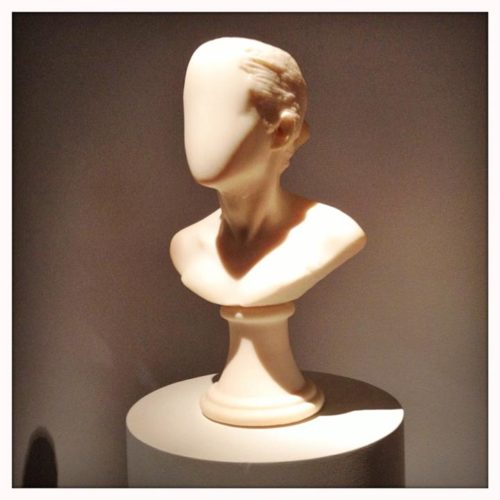“It’s the century of the Jew, the union cutthroat, the fag, and the whore!” Walt Disney (quoted in Leonard Mosley's Disney's World) "...machinery in itself shortens the hours of labor, but when employed by capital it lengthens them; in itself it lightens labor, but when employed by capital it heightens its intensity; in itself it is a victory of man over the forces of nature but in the hands of capital it makes man the slave of those forces; in itself it increases the wealth of the producers, but in the hands of capital it makes them into paupers." Karl Marx (Capital, vol 1) “White people go around, it seems to me, with a very carefully suppressed terror of Black people—a … [Read more...]
Doomed to Succeed, or Downsizing Subjectivity
"The problem with simulations is that they are doomed to succeed.’ So runs a common criticism of simulations—that they can be used to ‘prove’ anything and are thus of little or no scientific value." Patrick Grim, et al (Why Simulations Fail) "He reminds us that information means something deeper now: “It connotes a cosmic principle of organization and order, and it provides an exact measure of that.” The gene has its cultural analog, too: the meme. In cultural evolution, a meme is a replicator and propagator—an idea, a fashion, a chain letter, or a conspiracy theory. On a bad day, a meme is a virus." James Gleick (The Information) “Philosophy is a battle against the bewitchment … [Read more...]
Disintegration
“I believe that the action in film must become—will become—more and more interior.” Robert Bresson (Ideas and Men,Radio-télévision française, 1950) "On average, it took 58 days for the president to sign off on a target, one slide indicates. At that point, U.S. forces had 60 days to carry out the strike. The documents include two case studies that are partially based on information detailed on baseball cards. The system for creating baseball cards and targeting packages, according to the source, depends largely on intelligence intercepts and a multi-layered system of fallible, human interpretation. “It isn’t a surefire method,” he said. “You’re relying on the fact that you do have all … [Read more...]
Homo Economicus or Life in the Magic Kingdom
"The desired outcomes in the case of the generic Disney narrative include: brand loyalty; return to point of origin (ideal/americanized childhood); return to point of sale, serial selling (the integration syntactically of thematically linked products: films, soundtracks, merchandizing, vacations, etc.). At a more abstract level, those outcomes extend to the suburbanization of the global imaginary, the Taylorization of leisure, compliance with the overall mission (e.g. internalization of the performance goals and obsequious behavioral norms of a hyperconformist service economy) and something close to ‘disenstrangement’ – the domestication of all otherness, the subtraction of risk from … [Read more...]
A Solution Without a Solution
"Ultima ratio regum. (The final argument of kings)" Inscription on french cannons, on order of Louis XIV “The language of Enlightenment has been hijacked in the name of corporate greed, the police state, a politically compromised science, and a permanent war economy.” Terry Eagleton (Reason, Faith, and Revolution: Reflections on the God Debate) "Capital wants a situation where command resides within the subject him- or herself, and within the communicative process. The worker is to be responsible for his or her own control and motivation within the work group without a foreman needing to intervene, and the foreman's role is redefined into that of a facilitator." Maurizzio Lazzarato … [Read more...]
Privatizing Emotions
"But habitual identification with the aggressor also frequently occurs in people who have not suffered severe trauma, which raises the possibility that certain events not generally considered to constitute trauma are often experienced as traumatic." Jay Frankel (Identification with the Aggressor) "These children feel physically and morally helpless...for the overpowering force and authority of the adult makes them dumb and can rob them of their senses. The same anxiety, however, if it reaches a certain maximum, compels them to subordinate themselves like automata to the will of the aggressor, to divine each one of his desires and to gratify these; completely oblivious of themselves they … [Read more...]
The Ironic Little Nazis
"As states have hastily emulated measures adopted elsewhere, in particular through the imposition of curfews, nationwide lockdowns and travel bans, and escalation of citizen surveillance, a wave of authoritarian governance has swept the globe with profound, worldwide implications for democracy, the rule of law, and human rights, dignity, and autonomy. Reinforced by threats of criminal sanction, from fines to imprisonment, states have exerted tremendous vertical, paternalist power on citizens, despite serious questions as to the efficacy, sustainability, and proportionality of adopted measures. Day-to-day life was essentially suspended worldwide, with borders closed, social gatherings banned, … [Read more...]
The Woke Freikorps
"I would rather be a cyborg than a goddess." Donna Haraway (A Cyborg Manifesto: Science, Technology, and Socialist Feminism in the Late Twentieth Century) "Because something is happening here But you don't know what it is Do you, Mister Jones?" Bob Dylan (Ballad of a Thin Man) "I'm not in the business, I AM the business." Spoken by Rachel the cyborg, or replicant, in Blade Runner (dr. Ridley Scott, 1982) There are mass regressions, psychologically and emotionally, taking place against the backdrop of the 'lockdowns' (sic). One sees this in an increasingly incoherent political spectacle, in the train wreck of unscripted extemporaneous comments from government leaders, and … [Read more...]








